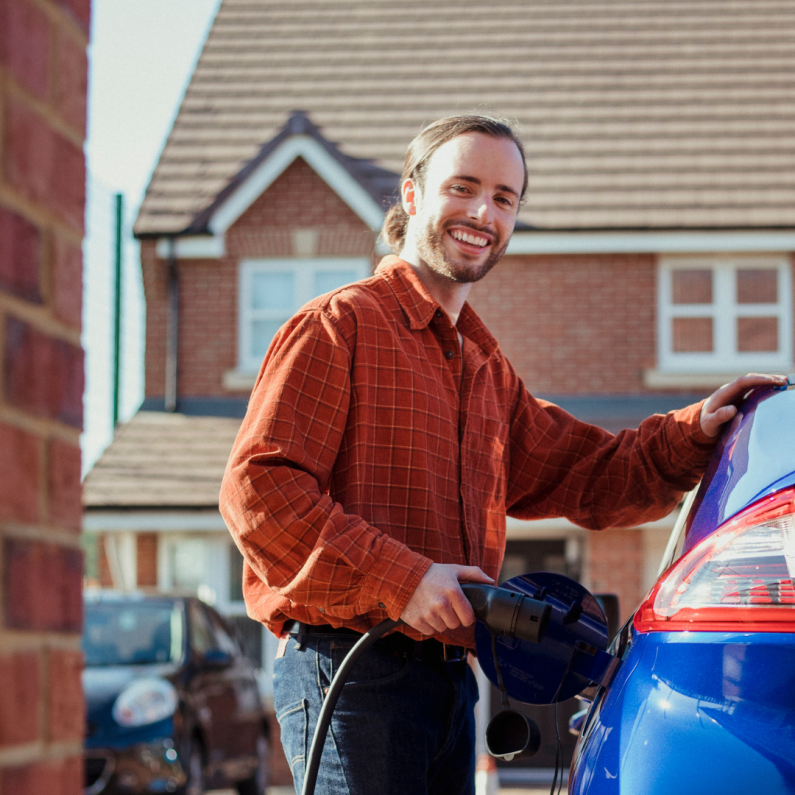As the prevalence of electric cars continues to grow, many drivers are looking to install a car charger at home. While this can be a great way to save time and money, there are a few things to consider before purchasing.
Why Install a Car charger at your home?
When you own an electric car, it’s important to have a car charger installed at your home with the help of professionals available at evchargerinstallation.au and similar platforms. Here are a few reasons why:
- It’s more convenient than public charging stations.
- You’ll save money in the long run.
- It’s better for the environment.
An electric car charger at home is a must-have for any EV owner. It’s more convenient than relying on public charging stations, less expensive in the long run, and better for the environment.
How to Install Car Charger at Home
Installing a car charger at home involves several key steps to ensure a safe and effective charging setup. First, identify the type of charger suitable for your electric vehicle (EV) and charging needs, such as a Level 1 charger for standard household outlets or a Level 2 charger requiring a dedicated 240-volt circuit. For Level 1 installation, simply plug the charger into a standard electrical outlet. However, for Level 2, it’s recommended to hire a licensed Level 2 Electrician to install a dedicated circuit, ensuring compliance with local electrical codes. This process usually involves obtaining necessary permits, assessing the electrical capacity of your home, and selecting an appropriate location for the charger. Once the preliminary steps are complete, the electrician will install the dedicated circuit for the Level 2 charger.
The electrician should also assess the electrical capacity of your home, enlighten you on the cost to install outdoor outlet, install a dedicated breaker, and run wiring to the charging location. Additionally, you may need a charging station that suits your vehicle, which can be wall-mounted for convenient access. After installation, it’s crucial to test the charger to ensure proper functionality. Regularly inspect the setup for any signs of wear or damage, and consider consulting with an electrician to ensure ongoing safety and compliance. By following these steps, you can establish a reliable and safe home charging station for your electric vehicle.
How Fast Do You Want to Charge?
If you’ve ever wondered how to install a car charger at home, you should consider a few things before you get started. One of the most important factors is how fast you want to charge your car. Depending on the make and model of your car, you may be able to charge at a faster or slower rate. You’ll also need to consider the type of charger you purchase and whether or not you need an adapter.
The first thing you need to do is figure out how fast you want to charge your car. If you’re only charging your car overnight, you can probably get away with a slower charger. However, if you’re looking to charge your car during the day, you’ll need a faster charger. Next, you need to consider the type of charger you purchase. There are two main types of chargers: Level 1 and Level 2. Level 1 chargers are the slower of the two, but they’re also less expensive and use less power supply.
The location you want it to be installed:
When considering where to install a car charger at home, it’s important to consider the location and how it will impact your daily routine. The charger should be installed near an outlet and in a spot, that is easy to access. You also want to make sure the cord is long enough to reach your car. Once you have a location in mind, the next step is to determine the type of charger you need.
Price of the project:
If you’re considering installing a car charger at home, you’ll need to consider a few things first. The most important factor is the cost of the project. You’ll need to factor in the cost of the charger itself, as well as the cost of any necessary installation. Additionally, you’ll need to consider the wattage of the charger you might need to charge the vehicle.
Once you have thoroughly researched and made an informed decision regarding the type of charger that suits your needs, the next step involves hiring a local electrician for installing the car charger at your home.
Safety:
There are many things to consider when installing a car charger at home. Safety is the most important factor when installing any type of electrical equipment. Make sure to read all the instructions that come with the car charger before beginning the installation process. It is also important to consult a professional electrician to ensure the installation is done correctly.
Type of power supply it will use:
If you’re considering installing a car charger at home, there are a few things you’ll need to consider, including the type of power supply it will use. Some car chargers are designed to plug into a standard household outlet, while others need to be hardwired into your home’s electrical system.
Consider the amount of power you’ll need to charge your car. A standard household outlet may be sufficient if you only need to charge your car a few times a week. However, if you need to charge your car every day, you may want to consider hardwiring your charger into your home’s electrical system.
Think about where you’ll be charging your car. If you have a garage, it may be easier to hardwire your charger into your garage’s electrical system. However, if you plan on charging your car in your driveway, you’ll need to make sure your charger is long enough to reach your car.

